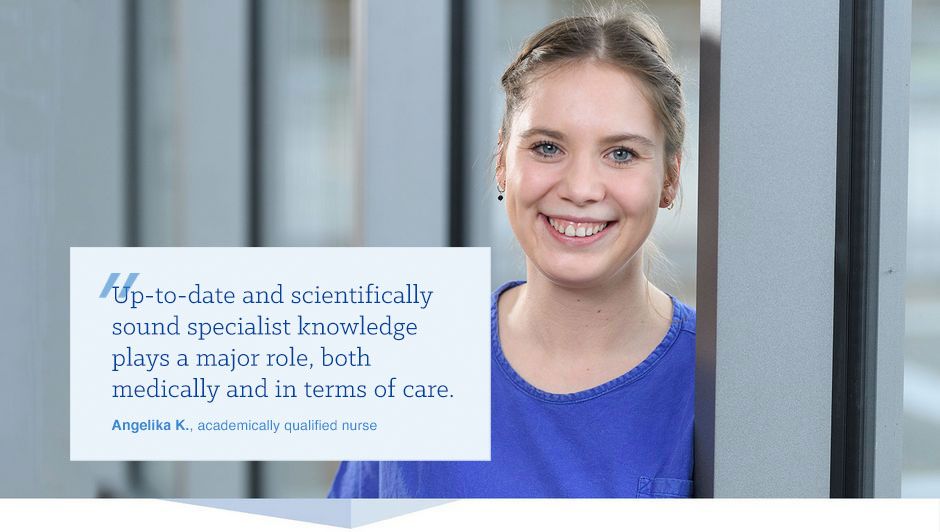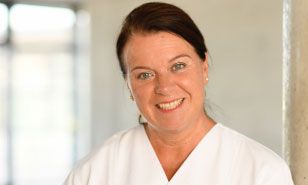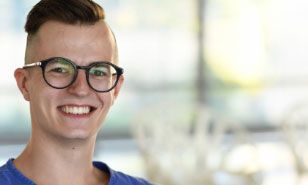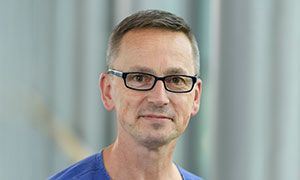Studying nursing – Angelika K. gives us a glimpse
Angelika, you took a dual education course in nursing, for example nursing training and a university course at the same time. How did that work?
I began my nursing training here at the UKW. As I already had my A levels [the school-leaving qualification required for university admission], the nursing school approached me and asked whether I would be interested in a dual education course in nursing. I of course took up the offer. The university course took place parallel to the training; I was released from practical work for the lectures. After three years, I then took the normal nursing exam and then followed up with a further one and a half years’ full-time study programme to gain a Bachelor of Science degree.
Training and studying at the same time – sounds like hard work...
Yes, sometimes it was. I had exams at the end of every semester, of course. In spite of the double load, it was great that I could always directly link up theory and practice. In the university course I chose the focus on gerontological psychiatry, for example. And at the UKW, I am in the “Age-Appropriate Hospital” project team and in the quality circle for geriatrics.
After my nursing exam, I began working 50 percent as a nurse on the O11, a general heart and thorax surgical ward. During semester breaks I always increased temporarily to 75 percent. Since gaining my Bachelor, I have worked full-time on the O11. I was familiar with the ward from my training time, which made the decision to start here fairly easy. I work closely together with a colleague from the O12 who also studied nursing.
What was the initial job familiarisation like for you?
I was one of the first nurses at the university hospital who had done a dual education course. Because we “didn’t exist yet,” there was no assistance we could have availed ourselves of. In the team we then defined goals for the deployment of academically qualified nurses at the UKW and set up a concept. My training was followed by a specialist introduction phase. Since finishing my studies, I have four to five days a month free for my Bachelor activities.
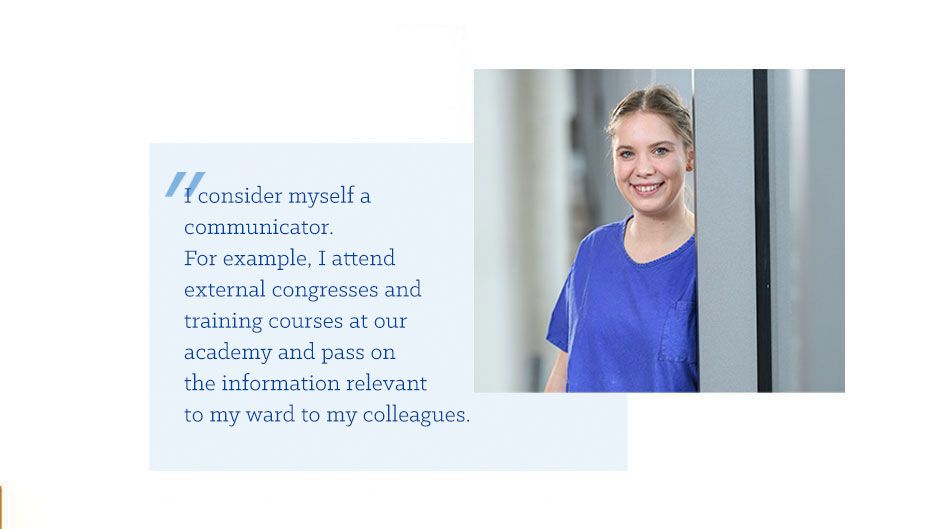
What are your responsibilities at the UKW?
Firstly, I have responsibilities on the ward. For example, I take over the further training management. Together with the doctors I recently organized a training course on coagulation levels. Here, the doctors answered all the specialist nursing questions on this subject. This went down well with the colleagues. Doing further training together with the doctors – we got into a really good discussion and were able to clarify uncertainties.
At the moment, one of my main projects is the introduction of interdisciplinary ward rounds – initially with the focus on cooperation between nursing and physiotherapy on a normal ward. Collecting scientific evidence, setting up a concept and then putting it into practice – this isn’t always easy. There are often obstacles that you don’t consider at all at the beginning. The factor of time of course also plays a large role in the hospital.
In addition to this, scientific work, particularly with current nursing-relevant standards, is an important part of my work. I draw up nursing standards, see what can be introduced on the ward, what will ease the nursing load, improve nursing or the quality of nursing.
I can choose my responsibilities myself; for example, I hear about new, relevant subjects at congresses and symposia I visit. For instance, we were recently at a two-day symposium in Berlin.
Apart from this, I largely join in normal nursing, and that is good. I enjoy the variety and the contact with patients. This means you have an all-round view, and the real problems are often only recognised here. Trying to improve things from the outside often doesn’t work.
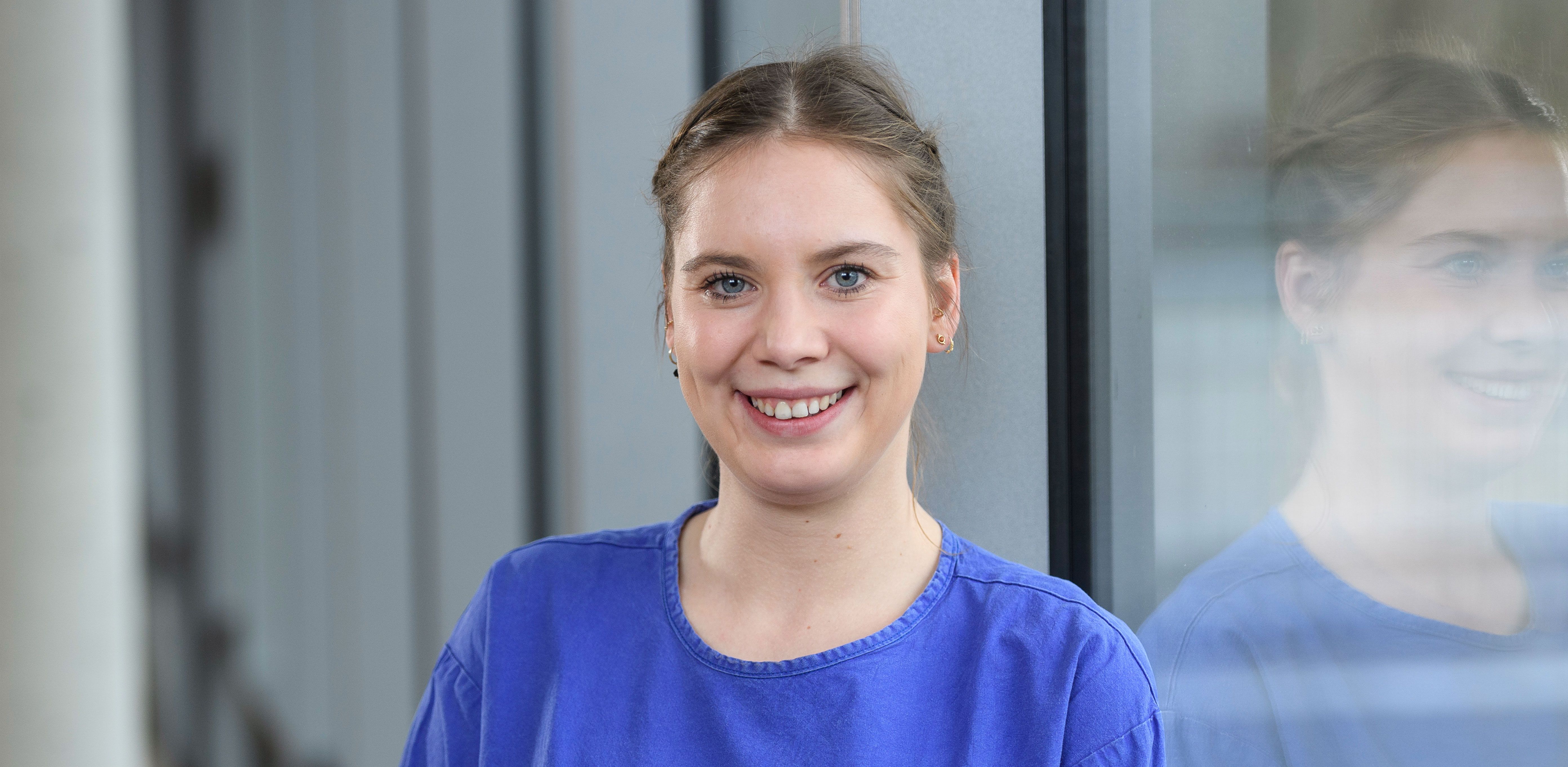
Which characteristics does an academically qualified nurse need?
You need to be able to keep the balance between theory and practice. The focus is on the patient – that mustn’t be forgotten. There is person who has just had heart surgery, for example, lying in hospital; he may not feel like filling in a questionnaire at the moment, but has quite different worries. Empathy plays an important role here.
In addition to this you need a lot of specialist knowledge. How is a study conducted, what is nursing quality and how can I guarantee it? And you need to be able to actually bring this scientific aspect into daily life on the ward, i.e. put it into practice. This is the cornerstone; in this way you can stimulate rethinking in nursing care, and compare and link knowledge from experience with scientifically based knowledge.
Apart from this, I think it is important to have a holistic view. With this I mean that you stay active yourself, that you think and notice, for example, that there is a new study or specialist congress which could be relevant for nursing at the UKW – and then go there, of course. At the university hospital, there is always the opportunity of sitting in on other fields and learning from this. The good thing about working in a maximum care hospital is that you can always find an expert who has knowledge about something or has even specialised in it. For example, wound management or nutritional consultation.
I see myself as a communicator. I am well-linked with colleagues from other specialist fields and professional groups. Maintaining communication, signalising approachability – this is important in my work. The ability to communicate is thus also a central characteristic.
What are your further goals?
I will soon be taking over the position as deputy ward manager. For this reason, I am taking a course in ward management at the academy from March 2020. I hope that through the course, I will be able to substantiate my knowledge in the subjects of duty planning and absence management in particular.
In 2020, we would like to continue furthering the UKW-wide networking of academically qualified nurses. In addition to this, the “Digital Curve” project is scheduled. In this project I am the contact person for the IT team. So there is a lot to do!
Thank you very much for your frank words!
Here the colleagues on the ward can give you insights into what is involved in their work as a nurse.
You want to work with us? Then we look forward to seeing you!
If you would first like some orientation, then you can gladly come for a couple of days’ observation and form your own opinion. You can contact us by email at pflegedirektion@ukw.de or by phone at the number +49 931 201-57102 so that we can arrange an appointment. We will also be glad to answer any of your questions then.
Your dream job is not advertised at the moment? Then send an unsolicited application for the field you find most attractive and together we will find a place for you. Please send your documents for this in PDF form to: pflegedirektion@ukw.de

